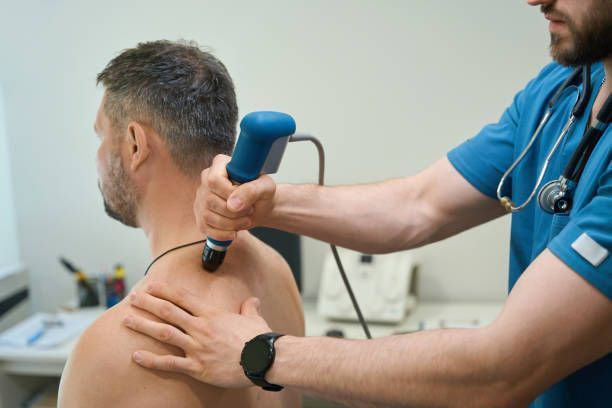A common therapy for joint pain may not be as safe as experts believed, according to a new report published Tuesday.
Corticosteroid injections are often given to reduce pain and inflammation from osteoarthritis.
But these injections may do more harm than good: The report found corticosteroid shots in the hips and knees may accelerate the progression of osteoarthritis and potentially even hasten the need for joint replacement surgeries in the long run, said lead author Dr. Ali Guermazi, a professor of radiology at the Boston University School of Medicine.
“The intra-articular corticosteroid injections in the hips and knees are not as safe as we thought,” Guermazi, whose paper is published in the journal Radiology, said.
It’s estimated that more than 30 million Americans have osteoarthritis, a chronic condition that causes cartilage loss, joint inflammation, pain, swelling and, in severe cases, bone destruction, according to the Arthritis Foundation.
Corticosteroid injections into the hips and knees are a common treatment for patients in significant pain; in one study of more than 16,500 patients who underwent knee or hip joint replacement, half had received corticosteroid injections in the prior two years. The injections often are covered by insurance.
In the new paper, Guermazi’s team reviewed existing literature on corticosteroid injections for osteoarthritis, and also looked at data on 459 patients at Boston Medical Center who received one to three corticosteroid injections in the hip or knee in 2018. The researchers found that 8 percent of patients developed complications, including cartilage loss, stress fractures, bone deterioration and joint destruction, in the two to 15 months following the injections.
The rate of complications surprised Guermazi, who added that the figure may actually be an underestimate, because 218 of the patients did not have follow-up imaging tests to assess the health of their joints.
While patients may report temporary pain relief from the corticosteroid injections, he said, the injections may be detrimental in the long run. “They may actually harm your knee or your hip,” he said.
An exact explanation for the findings is unclear, Guermazi said, but there is some evidence that corticosteroid injections, which typically are combined with an anesthetic, can be toxic to cartilage, and more studies are needed to understand their effects and clarify their benefits and risks.
Dr. Antonia Chen, an associate professor of orthopaedic surgery at Harvard Medical School and a spokesperson for the American Academy of Orthopedic Surgeons, said corticosteroid injections can help relieve pain in some, but not all, patients for as long as days or months. But patients should be informed that the injections carry risks, as the new paper and others have shown, which is why it’s recommended the injections be given no more frequently than every three months, she said.
“There are definitely benefits and there are definitely risks, and these risks must be mentioned to patients,” Chen said. “Some patients will say they don’t want to undergo temporary relief and they don’t want to have the chance of progressing their arthritis, and some say they need some sort of pain relief to just live day to day.”
But before turning to injections or other medications, Chen recommends that patients with osteoarthritis first talk with a physician about noninvasive approaches, such as exercise, physical therapy and weight loss.
Guy Eakin, senior vice president of scientific strategy for the Arthritis Foundation, agreed, telling NBC News that a healthy lifestyle remains the key to managing osteoarthritis.
“Exercise is really one of the best things that can be done,” he said.
Indeed, research indicates that exercise helps ease pain, improve mobility and strengthen muscles around the joints. Stretching activities such as yoga and tai chi may help increase flexibility and reduce joint stiffness. Exercise also can aid in weight loss to reduce pressure on the joints.
While arthritis patients in chronic pain may try to get relief from pain relievers or injections of corticosteroids or hyaluronic acid, there is no cure for the condition. Patients who ultimately end up with bone rubbing against bone may be in such severe pain and have such difficulty moving that they opt for a total joint replacement.
By Jacqueline Stenson : NBC News contributor Jacqueline Stenson is a health and fitness journalist who has written for the Los Angeles Times, Reuters, Health, Self and Shape, among others. She also teaches at the UCLA Extension Writers’ Program.



